MaNiyenap pugazhvadhallan matrondrum ariya ezhai
ANimayimayi nindru yaanum alaruvadhu arindhadaayo
ThaNiyena thagappae yindru sadukkena venai vittoda
ThuNiyadhai gnana vaaLal Sundarar ramaNa potri
Word meaning
maNi = gem; pugazh = praise; ezhai = poor person; alarudhal = hollering; thank = calm/cool down, douse; enadhu = mine; aga paey = mind ghost; thuNi = cut asunder.
Meaning
Except praising you as the Purest One I, a poor soul, don’t know anything else. Can’t you see me hollering (for your grace) sitting near you? Bless me with peace. Cut the ghost that is my mind with your sword of wisdom so that it departs from me this instance! Beautiful Ramana, I worship you always!
The poet laments his helplessness by saying that all he can do is praise Bhagavan as the purest one. [maNi has many meanings, from gem, pupil of one’s eye to time and an hour. Here, SV uses it to mean pure.] Although Bhagavan once said that prayers and praise does not get one very far, when one is helpless, especially when it comes to self enquiry, all that can be done is offer our prayers and praise which eventually leads to the path of self enquiry.
Once when a devotee asked if he could chant the Gayatri mantra, Bhagavan said definitely he could do that. Later that person said that when chanting he was trying to mediate on the meaning, Bhagavan said, ‘Who asked you to focus on the meaning? I said to focus on who is chanting the mantra’. Even when praising we are supposed to look at the one praising and praying.
‘Aga paei’ is quite frequently used in Tamil works, there was even a Siddha called Agappaei Sidecar because all his verses ended with ‘agappaei’. The mind with its wavering and uncontrollable nature is likened to a demon/ghost. ‘ThaNi’ means to cool or calm something down. Here SV asks Bhagavan’s grace to calm down the feverish mind that is out of control. The phrase has to be spit as ‘thanI enadhu aga paei’, meaning cool/calm down my demonic mind.
Coincidentally, Bhagavan, in Aksharamana malai, asks for the very same boon from Arunachala:
71 paeythanam vida vidaa paeyai pidhithenai
Paeyanakkinai en Arunachala
Meaning
Arunachala! From time immemorial, the ghost of the ego was possessing me. To chase that demon away, you possessed me as Brahma- paei (brahma ghost) even more strongly, thus making me a ghost, what a great wonder is that? How great is your power/strength?
[Note: Paei means ghost, demon, apparition, other-worldly force usually malefic, that possesses human beings.]
Explanation
The ego consciousness that makes one think of the body as self is referred to as ‘paei’ that is ghost or ghostly force. And the pure Self form that shines as ‘I’ or Brahman is called ‘vidaa paei’ (vidaa is not letting go, and paei is ghost, so the ghost that doesn’t let go of its grip). Since the ego has no form of its own, it attaches itself to other forms and lives, and is called ego-ghost or agandhai paei.
To help me escape from the powerful shackles of this ego ghost, you possessed me as brahma-paei (Self/Brahman ghost) without leaving me even for a second, and thus transformed me into a ‘paeyan’ (ghostly person). What a wonder, marvels Bhagavan.
Your immeasurable grace chased away my ego-ghost and took over as brahman-ghost and made me very much like it, which Bhagavan says ‘paeyan’.
ANimayimayi nindru yaanum alaruvadhu arindhadaayo
ThaNiyena thagappae yindru sadukkena venai vittoda
ThuNiyadhai gnana vaaLal Sundarar ramaNa potri
Word meaning
maNi = gem; pugazh = praise; ezhai = poor person; alarudhal = hollering; thank = calm/cool down, douse; enadhu = mine; aga paey = mind ghost; thuNi = cut asunder.
Meaning
Except praising you as the Purest One I, a poor soul, don’t know anything else. Can’t you see me hollering (for your grace) sitting near you? Bless me with peace. Cut the ghost that is my mind with your sword of wisdom so that it departs from me this instance! Beautiful Ramana, I worship you always!
The poet laments his helplessness by saying that all he can do is praise Bhagavan as the purest one. [maNi has many meanings, from gem, pupil of one’s eye to time and an hour. Here, SV uses it to mean pure.] Although Bhagavan once said that prayers and praise does not get one very far, when one is helpless, especially when it comes to self enquiry, all that can be done is offer our prayers and praise which eventually leads to the path of self enquiry.
Once when a devotee asked if he could chant the Gayatri mantra, Bhagavan said definitely he could do that. Later that person said that when chanting he was trying to mediate on the meaning, Bhagavan said, ‘Who asked you to focus on the meaning? I said to focus on who is chanting the mantra’. Even when praising we are supposed to look at the one praising and praying.
‘Aga paei’ is quite frequently used in Tamil works, there was even a Siddha called Agappaei Sidecar because all his verses ended with ‘agappaei’. The mind with its wavering and uncontrollable nature is likened to a demon/ghost. ‘ThaNi’ means to cool or calm something down. Here SV asks Bhagavan’s grace to calm down the feverish mind that is out of control. The phrase has to be spit as ‘thanI enadhu aga paei’, meaning cool/calm down my demonic mind.
Coincidentally, Bhagavan, in Aksharamana malai, asks for the very same boon from Arunachala:
71 paeythanam vida vidaa paeyai pidhithenai
Paeyanakkinai en Arunachala
Meaning
Arunachala! From time immemorial, the ghost of the ego was possessing me. To chase that demon away, you possessed me as Brahma- paei (brahma ghost) even more strongly, thus making me a ghost, what a great wonder is that? How great is your power/strength?
[Note: Paei means ghost, demon, apparition, other-worldly force usually malefic, that possesses human beings.]
Explanation
The ego consciousness that makes one think of the body as self is referred to as ‘paei’ that is ghost or ghostly force. And the pure Self form that shines as ‘I’ or Brahman is called ‘vidaa paei’ (vidaa is not letting go, and paei is ghost, so the ghost that doesn’t let go of its grip). Since the ego has no form of its own, it attaches itself to other forms and lives, and is called ego-ghost or agandhai paei.
To help me escape from the powerful shackles of this ego ghost, you possessed me as brahma-paei (Self/Brahman ghost) without leaving me even for a second, and thus transformed me into a ‘paeyan’ (ghostly person). What a wonder, marvels Bhagavan.
Your immeasurable grace chased away my ego-ghost and took over as brahman-ghost and made me very much like it, which Bhagavan says ‘paeyan’.

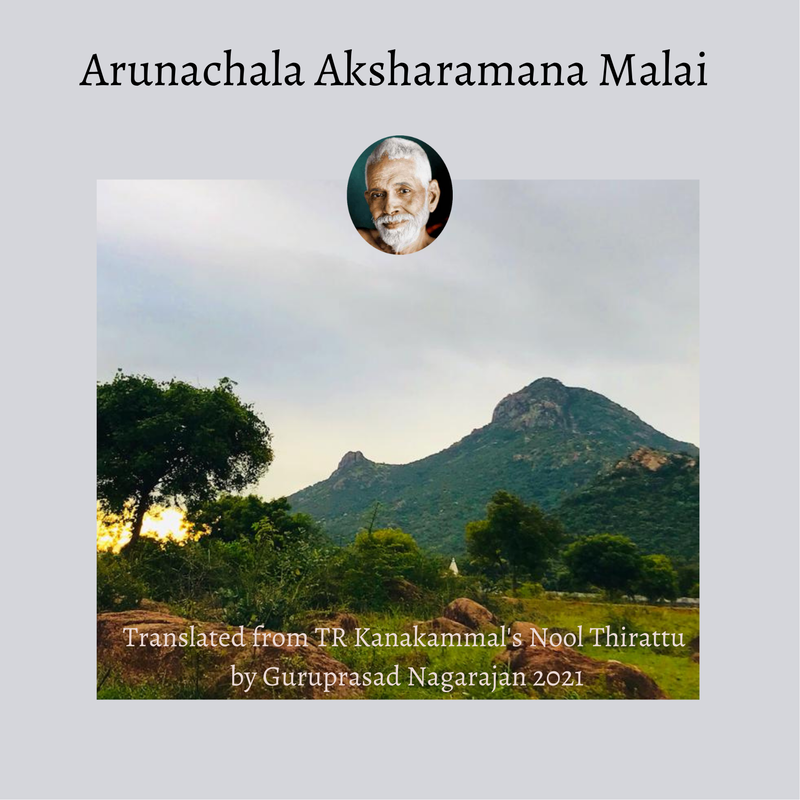
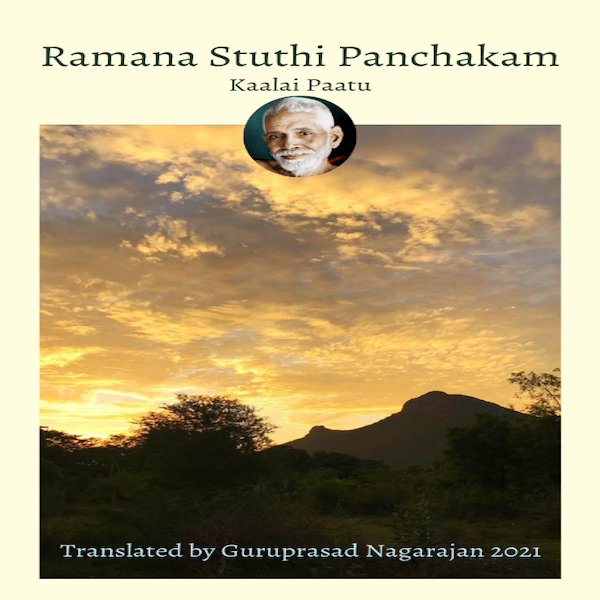

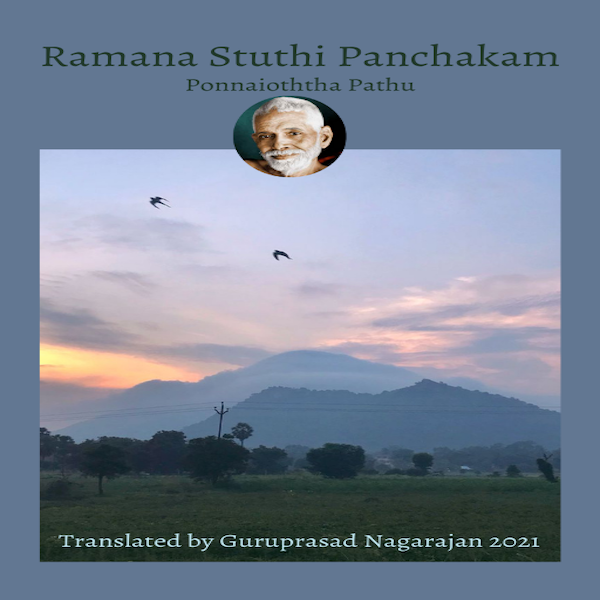
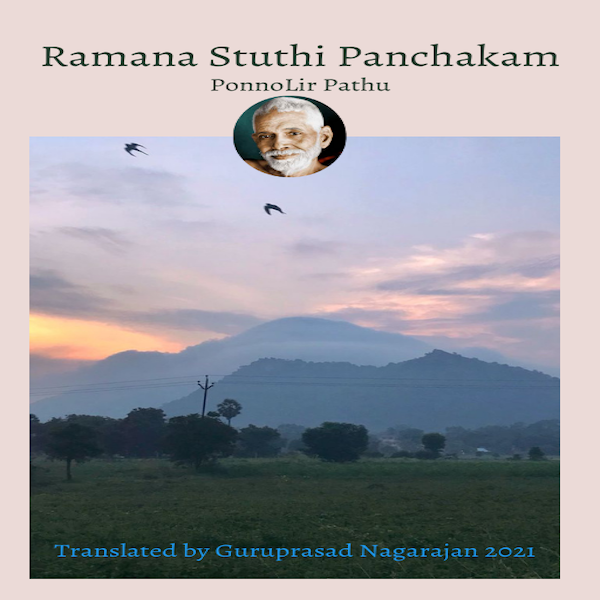
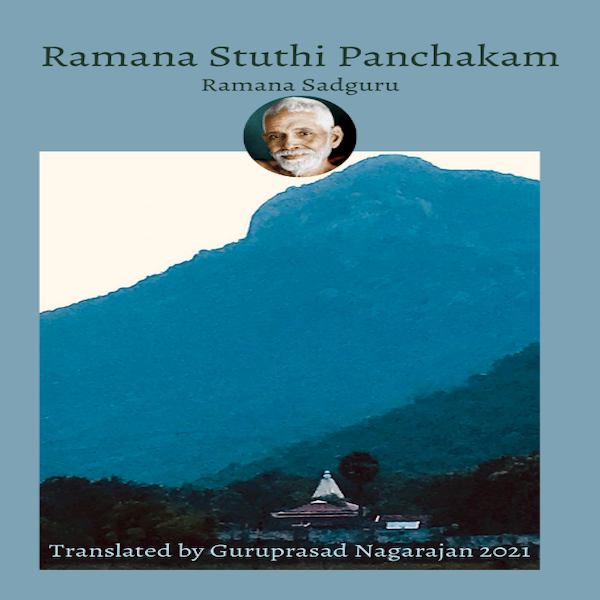
 RSS Feed
RSS Feed